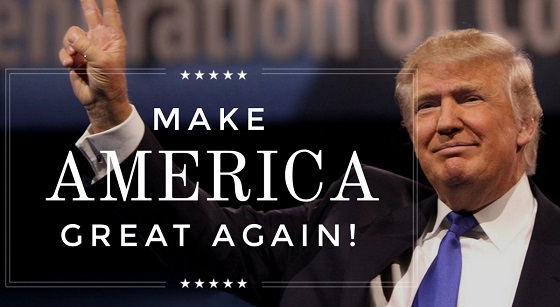Donald Trump and Political Correctness
September 28, 2015
Somewhere, Vladimir Putin is sitting in an underground lair cackling to himself over the decline of American virtue. Why, you ask? Well, if you consider yourself a functioning member of society, there is a strong chance that you have borne witness to the monstrosity that is Donald Trump’s presidential campaign. Since Trump announced that he was running in June, he has succeeded in offending virtually every racial, gender, and religious minority in the United States and beyond. (His most noteworthy triumph, however, is providing comedic fodder to what will likely be an excellent upcoming season of Saturday Night Live.) What is astounding about Trump is that he masks his sexism, racism, and other forms of blatant discrimination under the guise of abhorrence to political correctness. In the eloquent words of The Donald himself: “…the big problem this country has is being politically correct. I’ve been challenged by so many people and I don’t, frankly, have time for total political correctness. And to be honest with you, this country doesn’t have time, either.”
What is political correctness, exactly? Merriam-Webster defines it as “conforming to a belief that language and practices which could offend political sensibilities (as in matters of sex or race) should be eliminated.” In layman’s terms, it’s essentially the golden rule: treat others how you want to be treated. And if you are a person of privilege, that simply means to be self-aware, and to not go around disparaging others to bolster your own sense of superiority. Even if it’s “just a joke,” that “joke” is almost always presented in a hateful, however unknowing, context that wrongfully denigrates a group of people who may have spent centuries being oppressed.
But if you search for “political correctness” on Google, you’ll get a litany of responses from “is bad” to “gone too far” and even pejorative racial slurs. Similarly, if you bring up the phrase at a family dinner (and, like myself, happen to boast relatives exhibiting wide diversity on the political spectrum), you might get a range of varying responses. I, personally, was astounded by my self-proclaimed “liberal” friends and family members commending Trump on his blasting of political correctness. A friend of mine commented that although he “despises Trump and what he stands for,” he can “relate to not wanting to watch what you say every minute.”
Because Trump engages in his displays of political correctness bashing (to put it bluntly, pure discrimination) on a national stage, he is normalizing unscrupulous behavior for millions of Americans. When he calls women “fat pigs” and “disgusting animals” or plays on the popular trope of women acting irrationally when they’re on their period, he is telling men nationwide that it’s okay to demonize and objectify the opposite sex. When he refers to Mexican immigrants as “rapists” and “killers”, he is validating dangerous sentiments harbored by anti-immigration fear-mongers. And when he refuses to challenge a man who wants to “get rid of [Muslims]” and asserts that “[President Obama] is not even an American”, he is promoting the Islamophobic narrative that has plagued our country for over a decade. And while any other candidate would have bulldozed his political career over these comments, the public has allowed Trump to emerge unscathed.
And yet, many Americans have hopped on the Trump bandwagon—or at least sympathize with his ideas—despite his outrageous commentary. Frankly, it’s 2015. We shouldn’t be living in a society that rewards this monstrous perpetrator of hateful stereotypes with a cult of personality—or worse, public office. And while we can’t decide whether Trump wins the presidency (although his poll numbers are bound to drop, eventually), or pick the words that come out of his mouth, we can choose how we want to represent the American public. Are we to let personal privilege undermine tolerance? Or can we get over our egos and reject bigotry? Hopefully time will tell.
